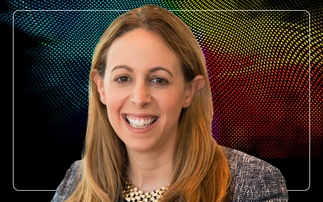Capital Group’s Jeremy Cunningham explains how the firm is managing the environment where low – and even negative – interest rates are becoming the norm
Negative interest rates have become an increasingly common feature of investment markets around the world over the past decade. In the years following the global financial crisis, the likes of Japan, Denmark, Sweden, Switzerland and the eurozone have all set policy rates at below zero. There are now around $15 trillion worth of bonds currently trading with negative yields, according to some reports. Add in the below-inflation rates on other fixed income instruments
All that creates a headache for fixed income investors. Negative rates make generating income a lot harder; potentially making some worry more about how to minimise losses rather than maximise returns. But even in these market conditions, there are still some good options, particularly for those investors willing to look beyond the higher grade sovereign bonds.
"It very much depends on what risk profile you're coming from as an investor, but when we look across fixed income markets today the area of opportunity that stands out is emerging market debt," says Jeremy Cunningham, an investment director in Capital Group's London office. "It's a much broader and deeper marketplace than it used to be 15 or 20 years ago, and we've seen significant growth in the local currency denominated debt that's available."
This area of the market has its own challenges of course. Among other things, it has been subject to relatively high levels of volatility and it can also suffer from limited liquidity. Quick returns are unlikely, so anyone getting involved needs to be willing to take a longer-term view.
There are also opportunities within higher-yielding corporate bonds if one looks carefully. "On the face of it, valuations in the corporate bond universe look stretched," says Cunningham. "But when we think about the sort of fundamentals that prevail in the high-yield corporate market, we think default rates will remain low. In an environment where we could well experience slower growth but still avoid recession, our analysts are seeing some strong opportunities among some of the high-yield corporate bonds that are available."
As ever, spreading one's risk is crucial and the need for diversification is particularly true when it comes to higher yielding instruments. Making allocations across two or three areas of the market, such as corporate bonds and local and hard currency emerging market sovereign bonds, is one way to limit the amount of risk being taken on, as all these products tend to perform slightly differently at different points of the economic cycle.













